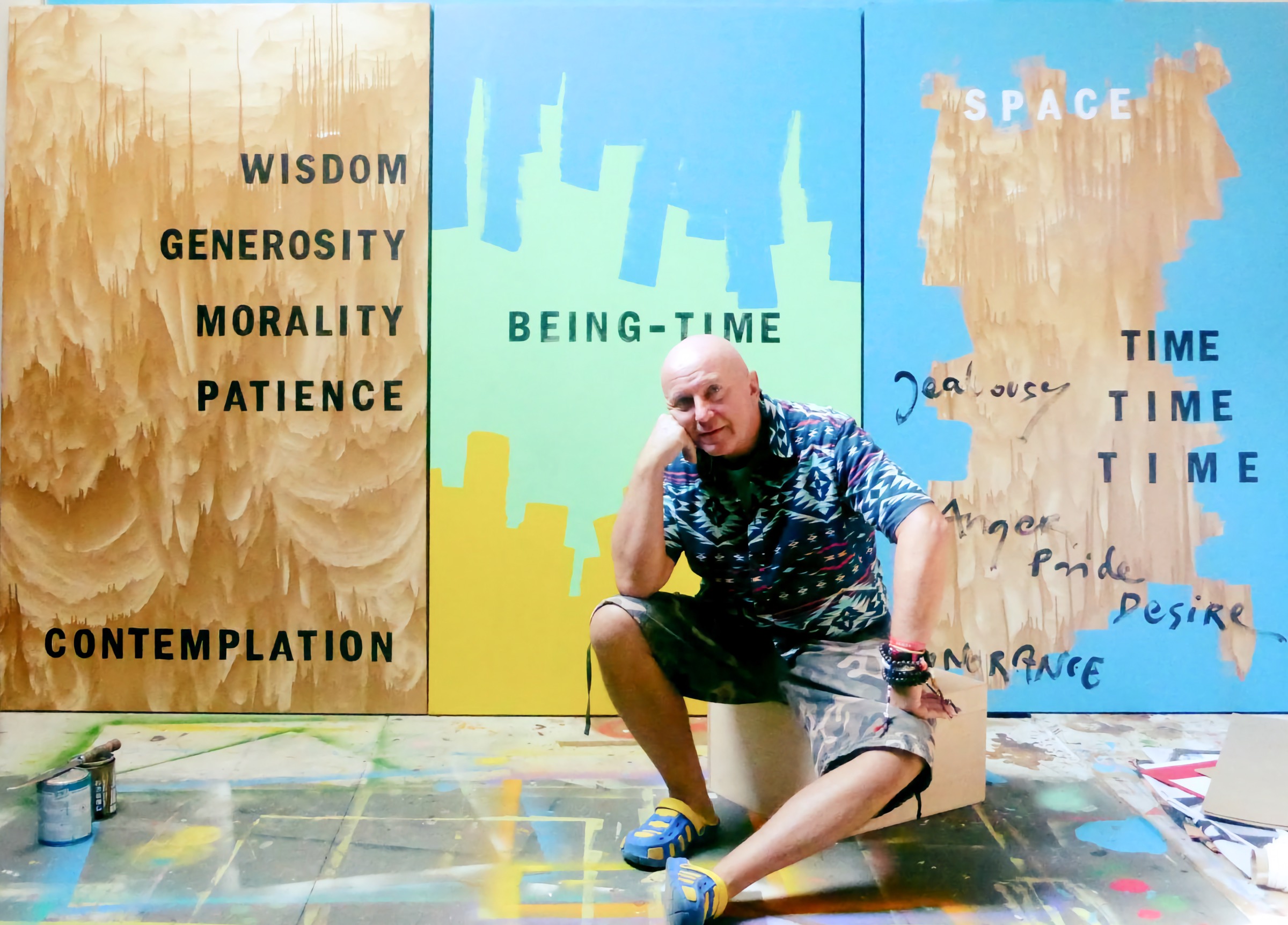SI-LA-GI
Szabolcs Szilágyi
Hungarian-Swedish Mixed Media Artist
SI-LA-GI (Szabolcs Szilágyi), born in 1949 in Tokaj, Hungary, is a prominent contemporary mixed media artist. His diverse works encompass painting, photography, sculpture, and installation, often reflecting his personal experiences, societal events, and extensive travels and immersion in Eastern philosophies. SI-LA-GI's art invites viewers to explore and engage with the profound interplay between text and image, tradition and innovation, the personal and the universal. Residing in Europe, SI-LA-GI continues to create impactful, thought-provoking art.
Early Life and Defection
SI-LA-GI (Szabolcs Szilágyi) is a contemporary mixed media artist born in 1949 in Tokaj, Hungary. From a very young age, SI-LA-GI showed a deep fascination with visual art, taking his first photographs at the age of 6.
After attending the Budapest School of Fine Arts for a few years, he made the daring decision to defect from communist Hungary in 1966. He swam across the stormy Adriatic Sea to reach Italy, and then Sweden, marking the start of his lifelong journey of global exploration and artistic experimentation.
In Sweden, SI-LA-GI continued his studies at the Stockholm Academy of Fine Arts and later taught at the University of Stockholm.
Artistic Practice
SI-LA-GI's artworks, which span a diverse range of media, including painting, photography, sculpture, installation, calligraphy, and prints reflect his personal experiences, societal events, and the profound influence of his extensive travels and immersion in Eastern cultures and philosophies.
One of the most striking aspects of SI-LA-Gl's art is the frequent use of words in different languages, which serve to initiate a process of thought, meditation, and exploration for hidden meanings. This approach encourages viewers to engage deeply with the artwork and discover connections between textual and visual elements. The multifaceted nature of SI-LA-Gl's works reflects his experimental spirit, as he often combines traditional techniques with unconventional materials to create unique and thought-provoking pieces.
SI-LA-GI’s collaborates with artists from diverse cultural backgrounds, including Tibetan Lamas, young Thai and Chinese artists, Hungarian artists, and street artists. For the Artist, these collaborations are not merely exchanges of ideas but intense, inspiring dialogues conducted through the artworks themselves. By inviting other artists to converse "on the canvas," SI-LA-GI fosters a dynamic interplay of perspectives that result in surprising and powerful outcomes
Throughout his prolific career spanning over six decades, SI-LA-GI has exhibited his artworks in numerous solo and group exhibitions worldwide, including venues such as the Ernst Museum, the Ludwig Museum, and the Tang Contemporary Art Gallery.
Influence and Legacy
Beyond his artistic practice, SI-LA-GI has been an influential figure in the art world, engaging in discussions on the role and purpose of art, the nature of creativity, and the human condition. His insightful commentaries on the commercialization and spectacle of the contemporary art scene have earned him a reputation as a visionary and a critic of the status quo.
"SI-LA-GI has not had a major solo exhibition in Hungary for 13 years. It is completely incomprehensible why the Hungarian art scene ignores an artist whose oeuvre maintains complete synchronicity with global contemporary art from its beginnings and has been recognized by iconic artists such as Andy Warhol and art critics like Pierre Restany." - János Kurdy Fehér (Art curator)
Today, SI-LA-GI shares his time between Budapest and Stockholm and continues to create thought-provoking, multifaceted works. As a true global artist, his impact on the art world extends far beyond geographical and cultural borders, making him a unique and enduring voice in the ever-evolving landscape of contemporary art.
SI-LA-GI's works are not intended for quick consumption, but for slow-moving, in-depth, contemplative reception.

